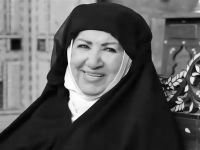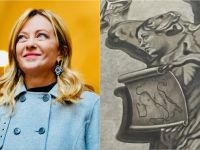Egyptian society has a debt to pay to Ahmed Adaweya, the father of Arab pop music.
Although his song El Sah In Dah In Bu remains a prize-winner for absurdity, and has set a standard for low-level performance, Adaweya nevertheless has his own qualitative style and a voice that captures the heart. Many have praised that voice, including Mohamed Abdel Wahab, Farid Al Atrash and Abdel Halim Hafez.
Hafez praised Adaweya to the extent that in a private party, he sang Adaweya's song El Sah El Dah In Bu, and Adaweya in turn sang Halim's song Khosara, Khosara.
Adaweya is a real singing phenomenon, and his communication with audiences is due to his talent, and not luck, nor his words, which by coincidence touch the wounds of Arabs.
His folkloric voice is not of secondary importance. The folkloric style is not poor in words or melody. Famous writers of folkloric tunes used to write songs for Adaweya, like Ibn Leil, Sayed Quashquosh, Hassan Abu Osman, composed by Mohamed Asfour, Hassan Abul Sooud, Farouk Salama, and Hassan Nashat.
Maamoun Al Shenawy, the famous poet, also joined the list of writers of Adaweya's songs, along with Kamal Al Tawil, Baligh Hamdy, Sayed Mekawi, and Hany Shenouda.
Adaweya has had the luxury of words in his songs, and in melodies. Zahma Ya Donya Zahma (Crowded the World, Crowded), written by Hassan Abu Osman, composed by Hany Shenouda, is one of the best songs written and composed during the last 20 years
For a full 10 years he dominated popular music. Adaweya’s tapes outsold everyone. He was Egypt's first modern pop star. From him, all else in Arabic pop music followed. And if he is no more than a musical oddity from an odd era for most Egyptians today, for both the music industry, culture watchers and socio-political analysts, Adaweya is a phenomenon worthy of reams of study.
His first album was to sell one million in the form of a disc -- after that, he sold five million tapes in five years.
"It was selling over half a million copies in Libya alone," recalls Tarek Al Kashef of Americana Music. "This was at a time when people didn’t have that many cassette players. But he would sell 400,000 of each tape. His last one, in 1982, sold 250,000 in one week. Today that would be equivalent to about a million."
It's no surprise, then, that a horrendous snobbery came with this success. What Adaweya was offering, in Kashef's words, was "blue-collar baby talk" -- what has come to be called shaabi, or "popular" music.
It was the result of a unique combination, of producer Atef Montasser, lyricist Hassan Abu Itman and Adaweya himself. The style of the music they began with in the early 1970s was that heard in bellydance nightclubs today -- basically a traditional and respectable sound. By the late 1970s and early 1980s this sound had been packaged down to a modern pop-song format. The Arabic pop song was on its way – Albawaba.com
© 2001 Al Bawaba (www.albawaba.com)







